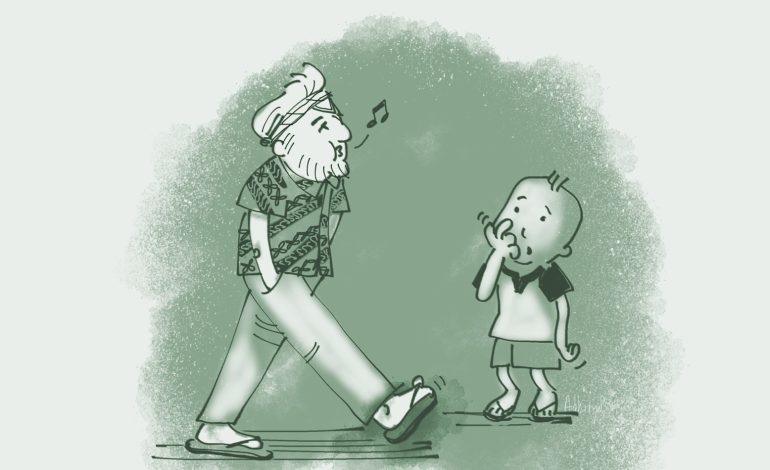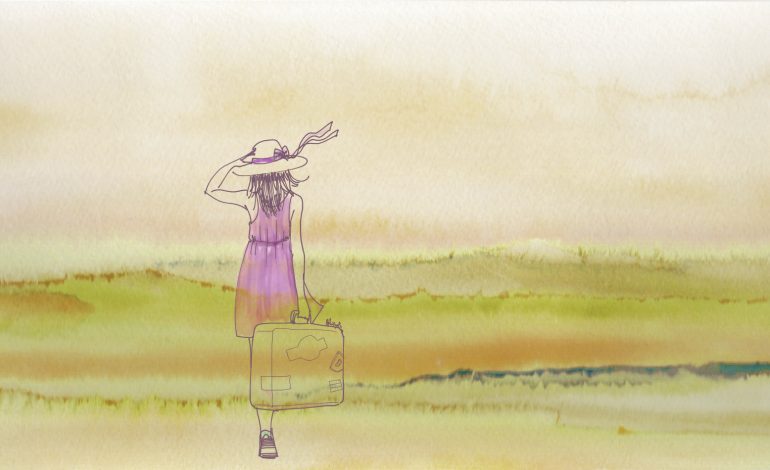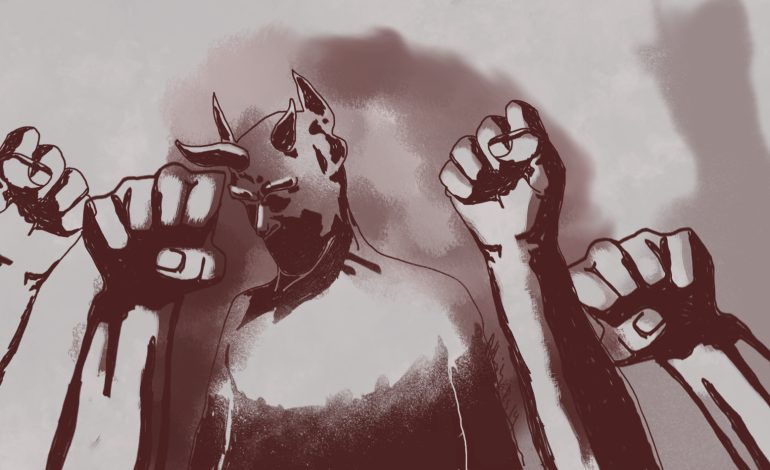Basiometer: Measuring the Staleness of Your Local “Bules”

Hello Friends, I came out of retirement as Indonesia’s “seksiest” Betawi bongo player, aspiring Bupati, Dangdut singer and cabaret dancer to join the fight against the Bule.
Friends, our Comrade-Kawan Elisabeth Oktofani wrote about the phenomenon of Bule Hunters or women who chase the Bule. Kawan Elisabeth wrote about Bule ‘rejek’, the Bule who cannot work in his country, but try to work in our country. My Guru Achmad Sudarsono wrote about White Trash Men and their impact on our country.
But My Friends, today we must abandon all Xenophobias and become a Scientific One. We must find a way to precisely measure the weakness of the Bule for when one day we Rule His Country. We must embrace.
The Basiometer
“Seksi” Friends, the Basiometer, like the speedometer, hubometer and thermometer, will allow us to measure the precise level of “Basiness” in a Bule. I wrote about this before, back in 2010, but to support Comrade Elisabeth, let us revisit the concept.
What is Basi? We Asians are infinitely subtler than our Occidental counterparts, a quality reflected in the hidden and symbolic messages in epics such as the Mahabharata. Thus does Basi elude precise definition as did Diponegoro slip away from the forces of Belanda. Thesaurus.com defines rancid as “rotten, strong-smelling”, and….

“…bad, carious, contaminated, curdled, decomposing, disagreeable, disgusting, evil-smelling, feculent, fetid, foul, frowzy, fusty, gamy, high, impure, loathsome, malodorous, moldy, musty, nasty, nidorous, noisome, noxious, off, offensive, olid, polluted, putrefactive, putrefied, putrescent, putrid, rank, reeky, repulsive, sharp, smelly, sour, soured, stale, stinking, strong, tainted, turned, unhealthy, whiffy….”
Friend, some of these are too harsh. The Bule can be every one from naive and well-meaning English teacher to the most wretched Blok-M derelict.
I think stale is a better translation:
“…antiquated, banal, bent, cliché, cliché-ridden, clichéd, common, commonplace, corny, dead, drab, dull, dusty, effete, flat, fusty, hackneyed, insipid, like a dinosaur, mawkish, moth-eaten, out, passé, past, platitudinous, repetitious, shopworn, stereotyped, threadbare, timeworn,tired, trite, unoriginal, well-worn, worn-out, yesterday’s, zestless….”
From Elisabeth’s writings, there are many such Bule in Jakarta and Indonesia. But how can we identify them?
Now the Basiometer takes out all the guesswork.
At first, I think Basiometer should be from 1-10, but I think it needs full percentage. We’ll skip 0-50 percent on the Basiometer, which means “still fresh”, and go straight to the fermentation.
- Proto-Basi Warning Signs: (Men and Women) (50-80 percent depending on severity)
· Extending a first contract at The Jakarta Post or for teaching at an English school (50%+)
Friend, you’re in danger. You’ve hit your comfort zone. The post-apocalyptic skies of Jakarta no longer make you crave a Xanax. You’re blasé and bored with the Singapore visa run. You start to think the job prospects or lifestyle is worth the macet.
· Earnest opinions about corruption and Indonesia’s problems, vaguely implying if you were in power you could fix them (50%+)
The confusing headlines and daily challenges are coalescing into a worldview. Bule starts to get deathly dull now. If Sri Mulyani Indrawati fell afoul of the status quo after a successful five-year run, what chance would a washed-up stockbroker or 30-something arts graduate from Scunthorpe have? (We’ll cut uni students some slack). Most Indonesians without their noses in the trough have been dealing with these problems their whole lives and don’t have a passport escape route.
· Complaining about “inefficiency”, “jam karet”, or poor job performance of service staff (50%+)
Speaks for itself.
- Full Basi: 80-100 percent
· Been in Indonesia more than 10 years (100%)
Basiness reaches a zenith in those two wooden plaques in one of the Blok-M bars. “They’ve done their time”, either 10 or 20 years. It’s hard to stay fresh if you’ve been in Indonesia since the 1990s or before. Such Bules usually have a predictable life cycle, starting from their 20s or 30s, when they first arrived to the onset of middle age, starting with enthusiasm and ending in bitterness and resignation.
· Ayams (hookers) recognize you at malls (100%)
We can’t blame the Bule for succumbing, now and then, to the temptations of Indonesia’s sultry tropical nights. But when every second Ayam-made-good at the malls knows you by name, the Basiometer hits at least a 10: full Basi.
· For men and women: Gleeful appearance on dumb TV programs (90%)
It’d one thing when JakTV news accidentally catches the Bule, say, at the airport. Appearing on shows like “Bule Gila”, or even worse, having your own show like that annoying “Wahyu” guy, (formerly Dale Andrew .Collins-Smith), launches you into hard core Basi territory. Wahyu, reports Fairfax, had an “unsatisfying” career as a flight attendant, moved to Indonesia 15 years ago, and starred as a cross dresser in the soap opera “Toyib Minta Kawin” before becoming “close” to a Satpam at his house.
· Too much inside knowledge
Bust out too much gaul (hip) slang? Bahasa Indonesia too good? Know too many short cuts on an ojek? Sorry, pal: time for the compost heap. (That goes for long-term regulars on Indonesia Matters too). In China or France, you’d be applauded, even expected, to master the local language. Here, we tend to assume you learned it from bar girls. If you know the best way to get from your nearest CBD home through numerous back streets and kampungs, maaf. You’ve met too many taxi drivers for your own good.
Here are some other signs of Basiness, but feel free to add your own ideas:
· Collection of old batik shirts
· Iwan Fals tapes
· Appearing in Indonesian Tattler/Jakarta Java Kini
· Writing letters to The Jakarta Post
· Still have a first-generation Internet address you got here
· Correct locals on history or politics
· Get invited to a Kemchicks checkout chick’s wedding/marry a Kemchicks checkout chick
Find out what makes a “bule hunter” ticks here.
About Dikkiman Sujengkol
Dikkiman is a poet, aspiring Bupati, dangdut singer and pencak silat master.






















